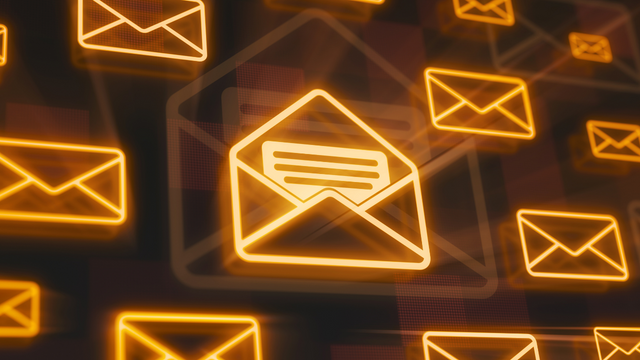How would you feel if someone is keeping a close eye on everything you do? What you buy, what you eat, and whom you meet, someone you haven’t met in life knows it all. Not just knows but sells this information to anyone who bids for it.
How would you feel? Unsafe, right? That’s how life on the internet is for you. What you post, what you like, what you search, and even what you chat about with your friends, every data is being collected and sold to capitalist companies.
You may have a private social media profile, but that’s not it. Staying anonymous on the internet takes more than that. Here are some ways to have privacy and anonymity on the internet.
10 Tips to Stay Anonymous on the Internet
-
Use an encrypted messaging app
Some prominent social media apps, like Instagram and Facebook messenger, use your texts to extract information from them and sell them to companies that use them to study market demand.
To secure your conversation, you can use an encrypted messaging app like Signal. It is similar to any other texting app and has the same features. What is different about it is that it uses end-to-end encryption that even the national security agency (NSA) cannot brute-force.
-
Use an encrypted browser
Google is one of the oldest and most prominent browsers amongst internet users. While it is easily accessible, it is famously known for ample data collection.
To claim anonymity, you can use encrypted browsers like Tor and stay anonymous on the internet.
Tor is encrypted and does not use any trackers that can track your online activities. However, some individual sites you visit might have their trackers on, which Tor cannot prevent. So to avoid this, you must use VPN.
-
Use a VPN
Unlike Tor, Virtual Private Network (VPN) encrypts all your activities on the internet. Not only does it hide your IP address from being tracked, but it also changes your location. For example, you might be residing in America, but connecting to the VPN can change your location to another country or continent.
However, it is essential to understand that VPN does not provide anonymity, but because it changes the device’s location, it is impossible to track it.
-
Use secure email services
Almost all of us use Gmail to send emails. Google tech company made sure that its services reach everyone. Since it is easy to use, users do not explore other secure options despite knowing that Gmail stores all their private emails on its servers.
Protonmail, brought to us by the same company that introduced ProtonVPN, has its servers end-to-end encrypted. This company is a non-member of the surveillance alliance, Five Eyes, which means it's not forced by the government to leak customer data.
-
Use a temporary email
Do you feel frustrated over receiving daily newsletters from companies you have no interest in? Especially when these emails appear side by side with other important messages.
Temporary email providers, like Temporarly, generate throwaway emails for you for free. You want to read an article online, but it asks you to sign up to continue reading. Why give away your real email when you can use temporary mail services and stay anonymous?
-
Use encrypted storage
Google has occupied the market in such a manner that whatever we need, we use Google services. When it comes to storing data, Google keeps it safe. However, it is still not a good choice in terms of privacy.
So to protect your files from prying eyes, you can use cloud drives that provide end-to-end encryption. Sync, Tresorit, and Protondrive are one of the best drives that utilize end-to-end encryption.
-
Avoid posting Personal Identifiable Information (PII)
We understand how tempting it is to post on the internet about that summer trip you had with friends. But while doing that ensure that you’re not sharing any PII like your address, phone number, and other confidential information to avoid identity theft.
-
Check app permissions
There are tons of apps that ask for too many permissions. Before giving them access, note whether they are necessary for the app to function. For example, “Google Photos” doesn’t need to know your location. You can go to your device’s settings to disable this feature and keep your social life more anonymous.
-
Use ad blockers
Ads don’t feed up on your data and have nothing to do with your privacy, but they can get annoying. Moreover, cybercriminals spread ransomware attacks by using malicious ads. So to prevent any mishaps, use ad blockers such as Adblock or Adblock Plus.
-
Don’t use Google
If you want to stay anonymous, avoid using Google. We know how prominent Google is, but it keeps a record of everything you search. It uses your personal data and sells it to advertising companies who use it further to their benefit.
Instead of Google, you can use other search engines such as Brave and Duckduckgo.
Brave has its own ad blocker and blocks ads from reaching your device through any website. Moreover, when you watch ads willingly, it pays you for your time.
Although Duckduckgo doesn’t have an ad blocker, it respects your privacy and doesn’t use your personal information to bring you targeted ads. All your search data is anonymized, and the ads you see are based on what you search.
-
Conclusion
One way or another, internet life does not naturally come with privacy. The sites that are easily accessible and free to use are the ones tracking your activity 24/7. Some users are okay with it as long as they keep using the internet freely.
However, if you prefer being anonymous, above are ten ways you can be so. If you’re eager to work for it, you can put a stop to this continuous surveillance.




